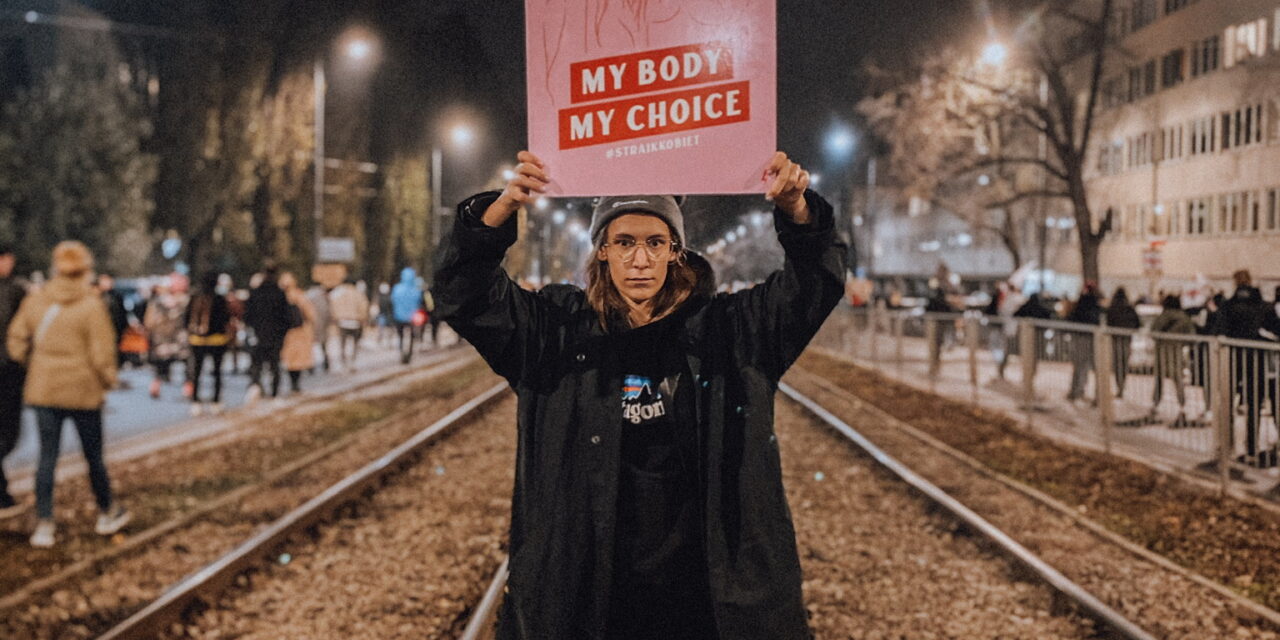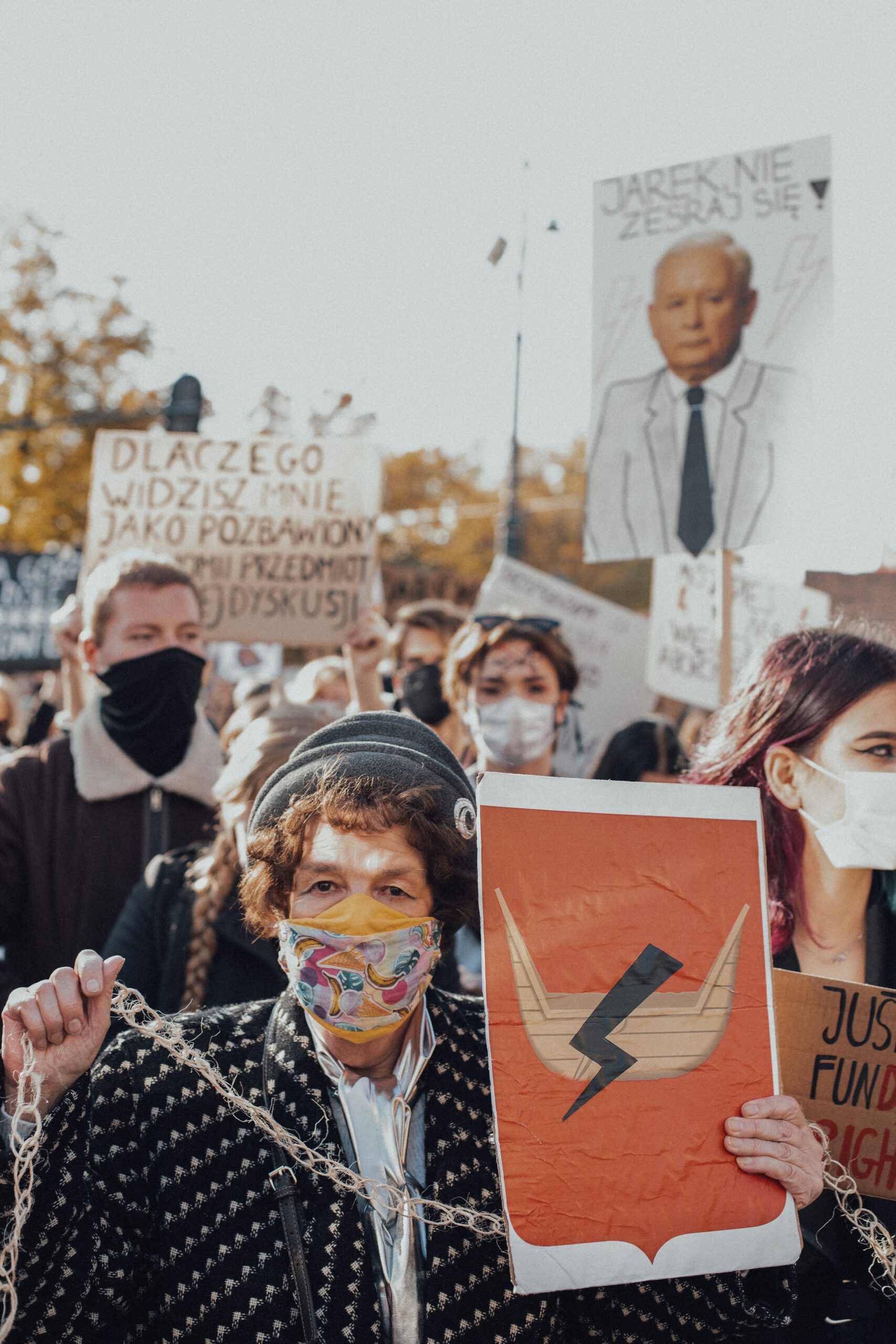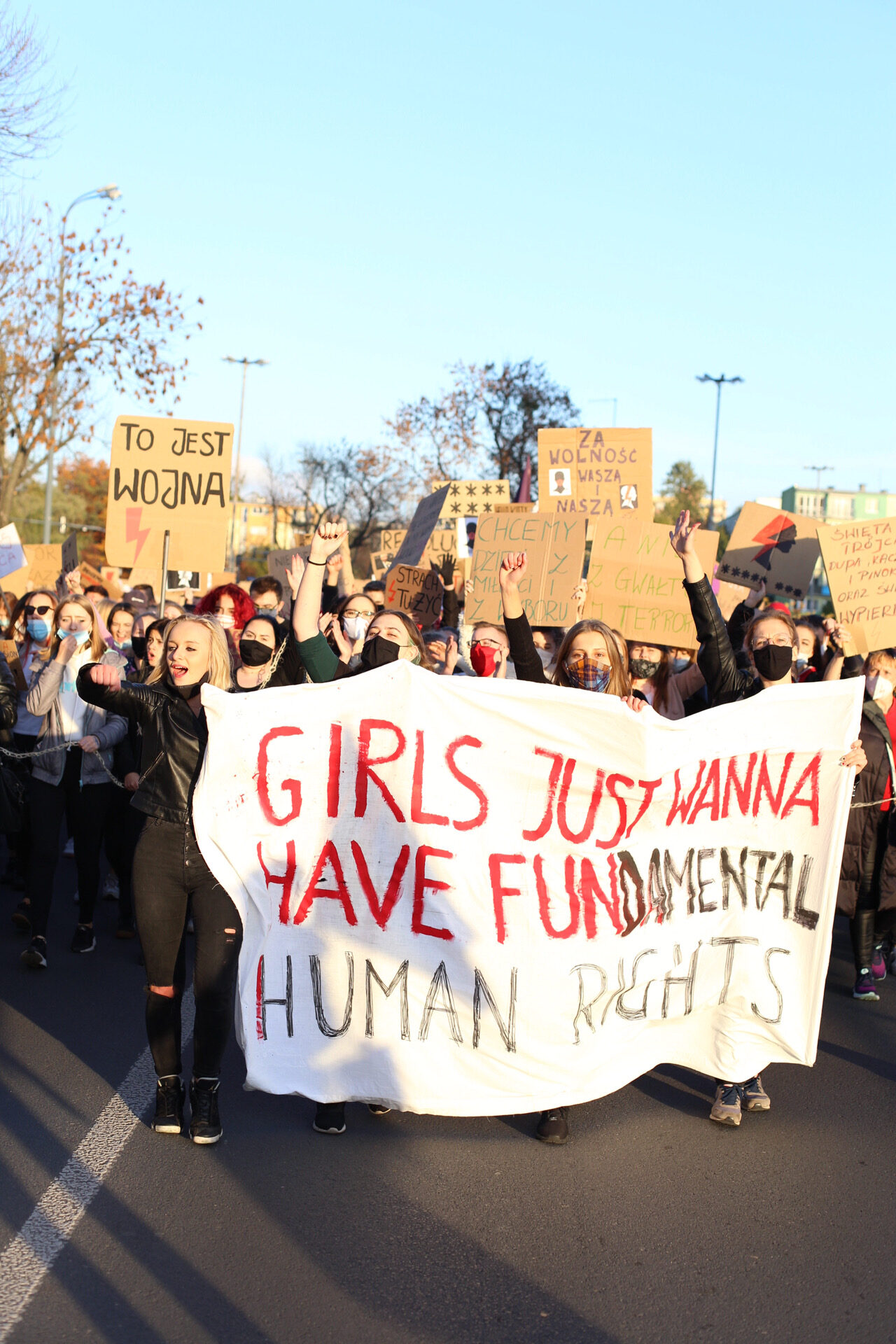Reproductive health rights vary greatly between the Member States, with some countries introducing restrictions to abortion. Last month, the Polish Constitutional Court delayed the implementation of a near-total ban on abortions after an upsurge of protests across the country.
The Polish Constitutional Court wants to remove one of the few remaining grounds for legal abortion, by making abortions in cases of birth defects unconstitutional. Poland already had some of the strictest abortion laws in Europe. It was only permitted under three circumstances: in case of rape or incest, when the mother’s life is at risk, and in the event of severe and irreversible birth defects. Last year, 1100 pregnancies were legally terminated in Poland. 1074 of them were due to severe and irreversible birth defect or an incurable illness. The Constitutional Court’s decision to prohibit further performance of procedures under these circumstances makes it equivalent to a nearly complete ban on abortion in Poland.
Dunja Mijatović, the Commissioner for Human Rights, called the Court’s decision “a sad day for women’s rights.”
Removing the basis for almost all legal abortions in #Poland amounts to a ban & violates #HumanRights. Today’s ruling of the Constitutional Court means underground/abroad abortions for those who can afford & even greater ordeal for all others. A sad day for #WomensRights.
— Commissioner for Human Rights (@CommissionerHR) October 22, 2020
The impact on Polish women
Krystyna Kacpura is the executive director of the Federation for Women and Family Planning in Poland and has been active in the field of reproductive health and rights for over 20 years. She explains that abortion in Poland has been subject to the political playing field of politicians and the influential Catholic church for many years.
Karen Melchior is a Member of the European Parliament for Renew Europe and Member of the Committee on Women’s Rights and Gender Equality. She elaborates on the EU influence regarding abortion rights and the current restrictions taking place in Poland.
Listen below:
Uprising of protests
Jarosław Kaczyński, deputy prime minister and chairman of the ruling Law and Justice (PiS) party, claimed that the court’s ruling is “fully in line with the constitution”. In his video statement, Kaczyński also stated that the protesters are seeking “to destroy the country”.
That wasn’t the reason for Klaudia Gierlicz (18) to protest in the city of Kołobrzeg. She simply wanted to express her sadness and anger for the decision of the Constitutional Court. “I cannot understand they agreed to this hell, to take away our rights to choose. Do they really want to take us back to the past when women had no rights? We are not only here to be a living incubator. We should have the right to choose.”
“I want to fight for us women, for myself, my kids and my grandchildren. I won’t stay silent when our government takes away our basic rights, thinking that they’re not doing anything wrong”, says Klaudia. “I won’t give up until we win.” She is aware of the fact that going out on the streets is risky now due to the possible spread of COVID-19 infections, but she feels like there is no other choice. “These protests are needed to help us achieve our goals. The government thought that if they introduced the new law during this time of the coronavirus, nobody would protest. They were very wrong, as thousands of people stood up against it. No pandemic will stand in our way.”
European concerns
Presidents of five political groups in the European Parliament wrote a letter to Mateusz Morawiecki, Prime Minister of Poland, in which they strongly protest against the “unprecedented attack on women’s rights and freedoms in Poland waged in the midst of COVID-19 pandemic” and urge the Prime Minister to take immediate action on this issue. “Just as other European women, the women in Poland have the right to decide about their life and cannot be forced to give birth, especially when severely deformed foetus has no chances of survival”, they wrote.
Sylwia Spurek, one of the Members of the European Parliament (MEP) and the Vice-Chair of the Women’s Rights and Gender Equality Committee, also expressed underlying concerns in her statement. “The decision of the Constitutional Court demonstrates that Polish women cannot rely on protection by institutions responsible for the defence of the Constitution and human rights. The European Commission must prove that the European Union protects its citizens, rather than stands with the governments and that we are a Community of values, rather than interests”, she comments. “Women’s rights are human rights and the right to safe and legal abortion is undoubtedly a matter of human rights.”
All the pictures used in this article are made by photographer Helena Ludkiewicz.







